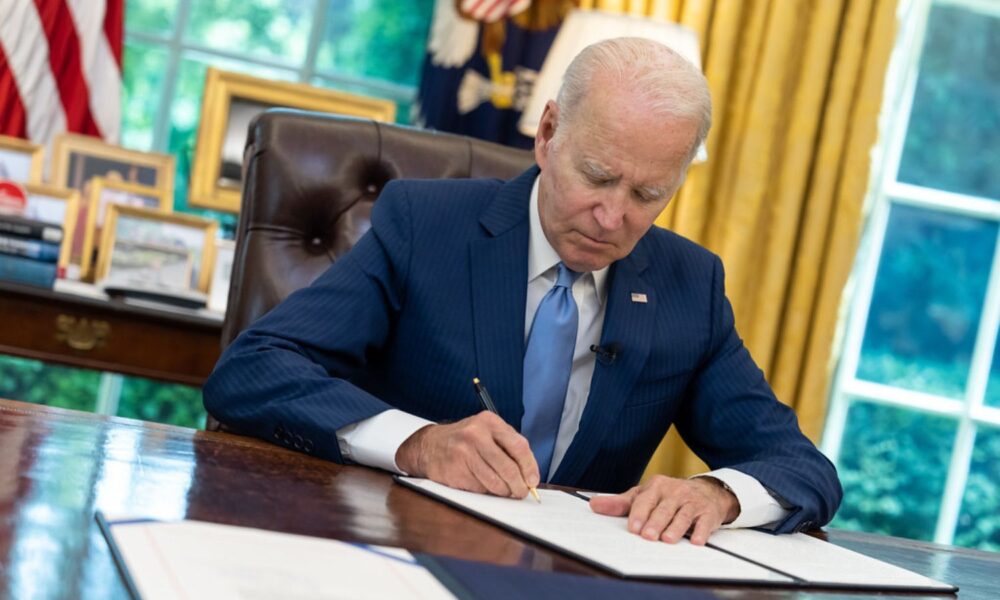The White House has published its very first scientific integrity policy to serve as an example of what other agencies should strive for when developing or updating their own policies this year. The Office of Science and Technology Policy (OSTP) has paved the way for this work following President Biden’s January 2021 presidential memorandum on strengthening scientific integrity. The process has included the formation of an interagency committee that produced a report and subsequent framework on scientific integrity.
The Center for Science and Democracy has been working for decades to ensure that federal scientists and their important work are protected from political interference. After hundreds of attacks on science by the prior administration, the Biden administration has taken significant steps to strengthen scientific integrity (protecting scientists and their work from political interference) across the entire government. Good scientific integrity measures are important so that science can inform government decisions that impact all our lives—from ensuring that the medical devices we use are safe and effective to determining solutions to combat the impending effects of climate change.
Highlights from the OSTP policy
We at the Union of Concerned Scientists consider the policy from OSTP to be quite strong. It does a great job of following the evidence-based recommendations and guiding principles set by the Framework for Federal Scientific Integrity Policy and Practice, and the 2021 presidential memorandum to strengthen scientific integrity. Among its many provisions, the policy adheres to the standardized definition of scientific integrity adopted by the National Science and Technology Council (NSTC) Fast Track Action Committee on Scientific Integrity. This may seem like a minor point, but it is critically important to help achieve a whole-of-government approach that fosters a strong culture of scientific integrity.
We have criticized prior scientific integrity guidance from the Biden administration for being lackluster on implementation and accountability measures. But the new White House’s scientific integrity policy lays the groundwork for what agencies could do or build on when it comes to accountability. In addition to establishing a scientific integrity officer for OSTP, the White House’s policy states that:
The [scientific integrity officer] shall respond to allegations of compromised scientific integrity in a timely, objective, and thorough manner. A response shall include the following steps: an initial assessment and review, a fact-finding process, an agency adjudication, or determination including description of remedies and preventative measures to safeguard the science, an appeals process, follow-up to track implementation of remedies, and reporting.
The policy also specifies in the roles and responsibilities section that the OSTP Director:
Ensures that violations of scientific integrity policies be considered comparable to violations of government ethics rules, with comparable consequences. There must be appropriate consequences for scientific integrity violations.
UCS has recommended that scientific integrity policies should be implemented such that violators, including political appointees and high-level officials, can be held accountable—something that was not done during the prior administration. The White House policy provides a process for its scientific integrity officer to respond to allegations, and names the director of OSTP as responsible for holding perpetrators accountable, which is a great start to an accountability process.
It’s also important that the OSTP policy specifies that violations of scientific integrity will be considered “comparable to violations of government ethics rules”—processes for holding perpetrators accountable that are clearly defined in the government. We’d love to see more detail on the process here, but the groundwork is solid. I believe that if agencies follow suit and build on this groundwork, we might see violators held accountable for their scientific integrity violations in the future.
We were also happy to see that diversity, equity, inclusion, and accessibility are woven throughout the policy. From the start of OSTP’s policy requirements, the White House is clear that promoting a strong culture of scientific integrity means that scientists feel their working environment is safe and equitable. The policy goes on to state:
Addressing long-standing and emerging issues of diversity, equity, inclusion, and accessibility is integral to the entire scientific process and attention to these issues can improve the representativeness and eminence of the scientific workforce, foster innovation in the conduct and use of science, and provide for more equitable participation in science by diverse communities.
Furthermore, OSTP’s policy recognizes that scientific integrity violations can have disproportionate impacts on underserved communities. This is an important point that my colleague, Anita Desikan, has researched extensively, including in a peer-reviewed paper published earlier this year.
We wish that the policy went further to detail mechanisms by which disproportionate impacts on underserved communities are factored into implementation and accountability mechanisms. For example: Are community voices involved in the process? Are they alerted of how a scientific integrity violation could harm them? Who investigates what communities are harmed—will it be the scientific integrity officer? We hope that the new NSTC subcommittee on scientific integrity will take this issue on and that their findings help further strengthen the framework on scientific integrity, the overarching guidance that helps agencies develop or update their scientific integrity policies.
YOU can help strengthen scientific integrity
Next month, federal agencies should be releasing their new or updated scientific integrity policies to the public. The White House policy serves as an excellent model policy that federal agencies should utilize as they continue to refine their draft policies. But YOUR VOICE should be heard, too! Federal agencies will also be opening public comment and listening sessions to hear from you about what you think of their newest scientific integrity policies. Stay tuned for more—we’ll be sure to keep you updated!
We all depend on government science to ensure that the water we drink and the air we breathe is clean, the food we eat won’t make us sick, and that our environment is healthy. This doesn’t happen when federal scientists are censored, their data is manipulated for political purposes, or important work is delayed.
Political interference in scientific work is very real and has dangerous consequences for the health of the public and our environment. That is why it is critically important that federal agencies have strong scientific integrity policies in place. Please join us next month as we lift our voices and demand that federal science be protected! And if you’d like to join UCS in our fight to keep science at the forefront of decision-making, consider signing up with our Science Network.

